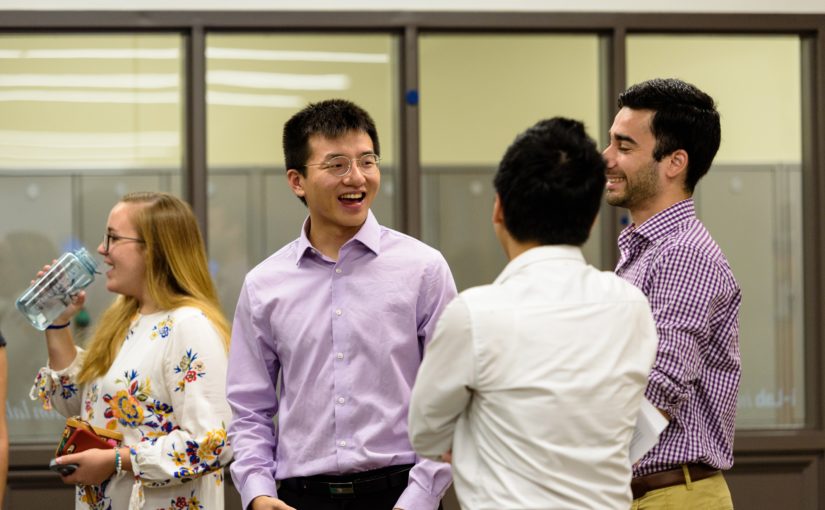by: Mark Stevens
How do you sum up a year-long experience where you’ve worked with a team of others, traveled to multiple countries, and examined solutions to some of the biggest challenges in the world today? This is exactly what we asked the students in the i-Lab to do on September 13—in five minutes or less, in front of the entire Keough School.
Over the summer the i-Lab sent 23 Master of Global Affairs students, in 7 project teams, to 14 countries across 5 continents, to work with organizations on the frontlines. Upon their return to campus, we gathered in the i-Lab space to let students tell their stories, explain why their projects are so important to their partner organizations, and discuss what they learned in the field and the impact they hope to achieve.
Our students were, in short, extraordinary. Here is a brief recap of their projects and stories:
Bangladesh Centre for Advanced Studies
Chista Keramati and Jamie McClung traveled to Bangladesh to investigate policies and programs aimed at reducing the vulnerability of women to climate change. They traveled to four different areas of the country to understand the effect of floods, cyclones, and changing weather patterns on local populations. They specifically observed how climate change affects women and their livelihoods, and explored the potential of leveraging underutilized systems, like the madrasa system, to further climate change education. Chista and Jamie are creating a report that BCAS will use to advocate for policy recommendations in Bangladesh.
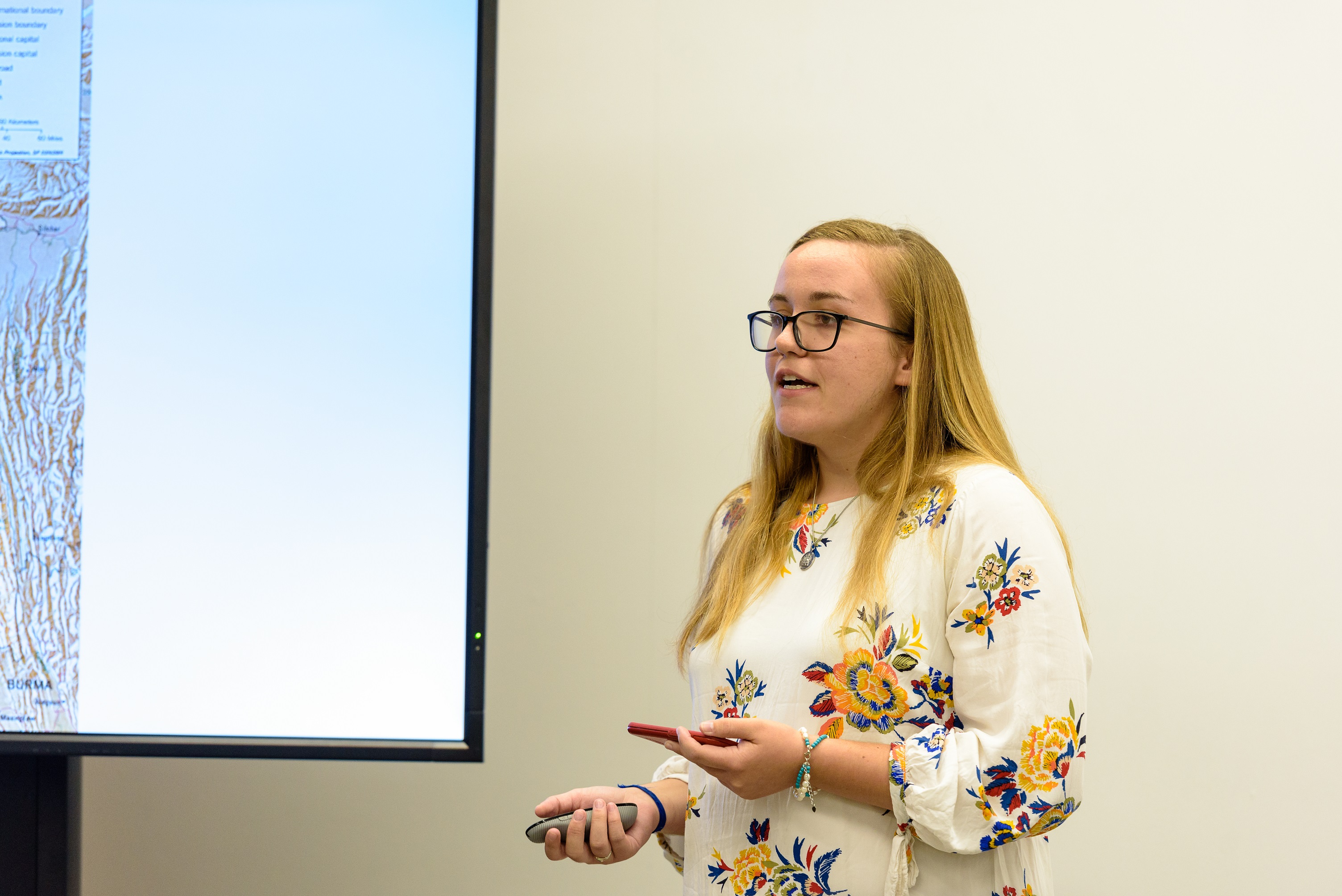
Enseña Chile
Ikromjon Tuhtasunov and Sonia Urquidi traveled to Chile to look for ways to help teachers enhance school performance and build school cultures that foster innovation and learning. They visited dozens of schools and conducted over a hundred interviews to gain an on-the ground, culturally-informed perspective of classroom dynamics and teacher performance. Meanwhile, Nnadozie Onyekuru partnered with Alliance for Catholic Education at Notre Dame to understand best practices that might translate to Chile. The team is assembling recommendations for incorporating positive feedback loops within schools.
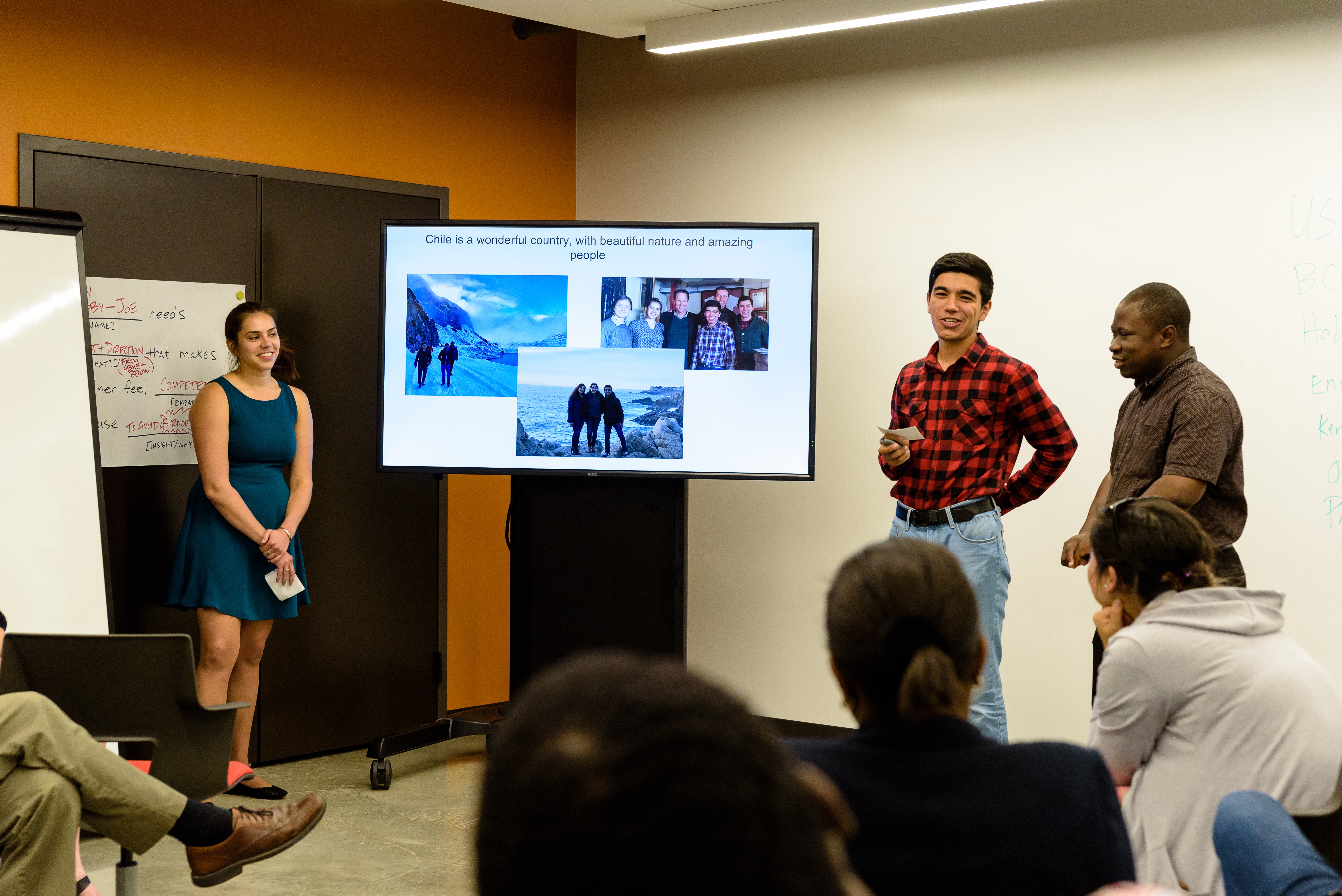
Program in Global Surgery and Social Change
Sarah Davies, Ngoc Thang, and Leah Walkowski traveled to Ethiopia, Tanzania, and Sierra Leone, respectively, to understand how to best catalyze and mobilize worldwide improved access to quality surgical care. Each of these countries provided a case study for different levels of adoption of safe surgery policies. The team conducted interviews at the national, regional, and local level, and toured facilities to gain a clear understanding of what is working and what opportunities still exist. Sarah, Ngoc, and Leah are currently developing case studies that will help PGSSC better promote safe surgery in other countries around the globe.
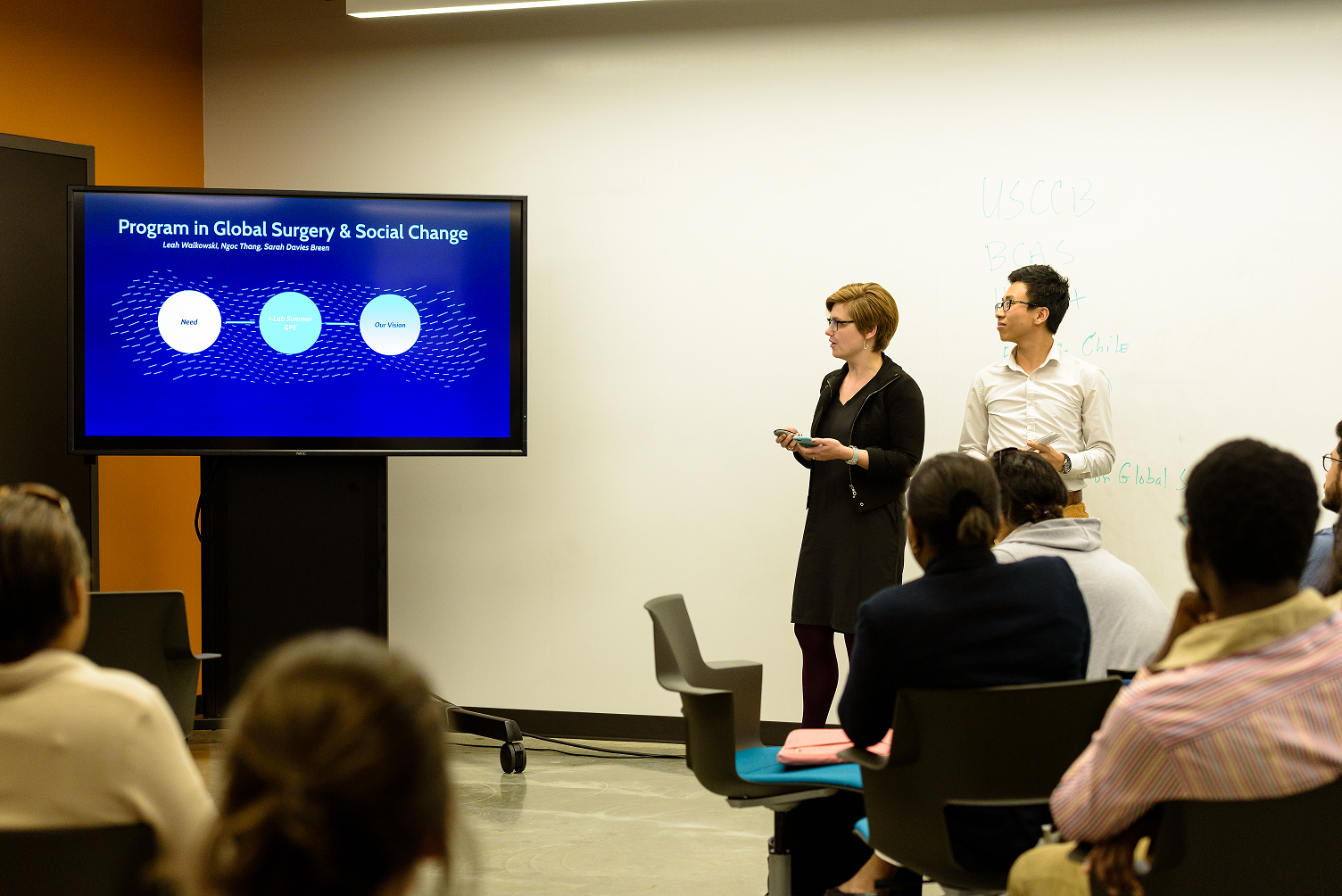
Oxfam America – Behind the Brands
Caroline Andridge, Sofia del Valle Trivelli, and Mian Moaz Uddin respectively traveled to India, Ghana, and Malawi to understand how best to adapt global supply chains toward a more sustainable, equitable food system. They worked to trace products, like sugar and cocoa, from the farmer to the producer in each country’s context. Caroline, Sofia, and Moaz are creating a report that will allow Oxfam and the “big 10” food and beverage companies to tailor sustainability strategies to local contexts.
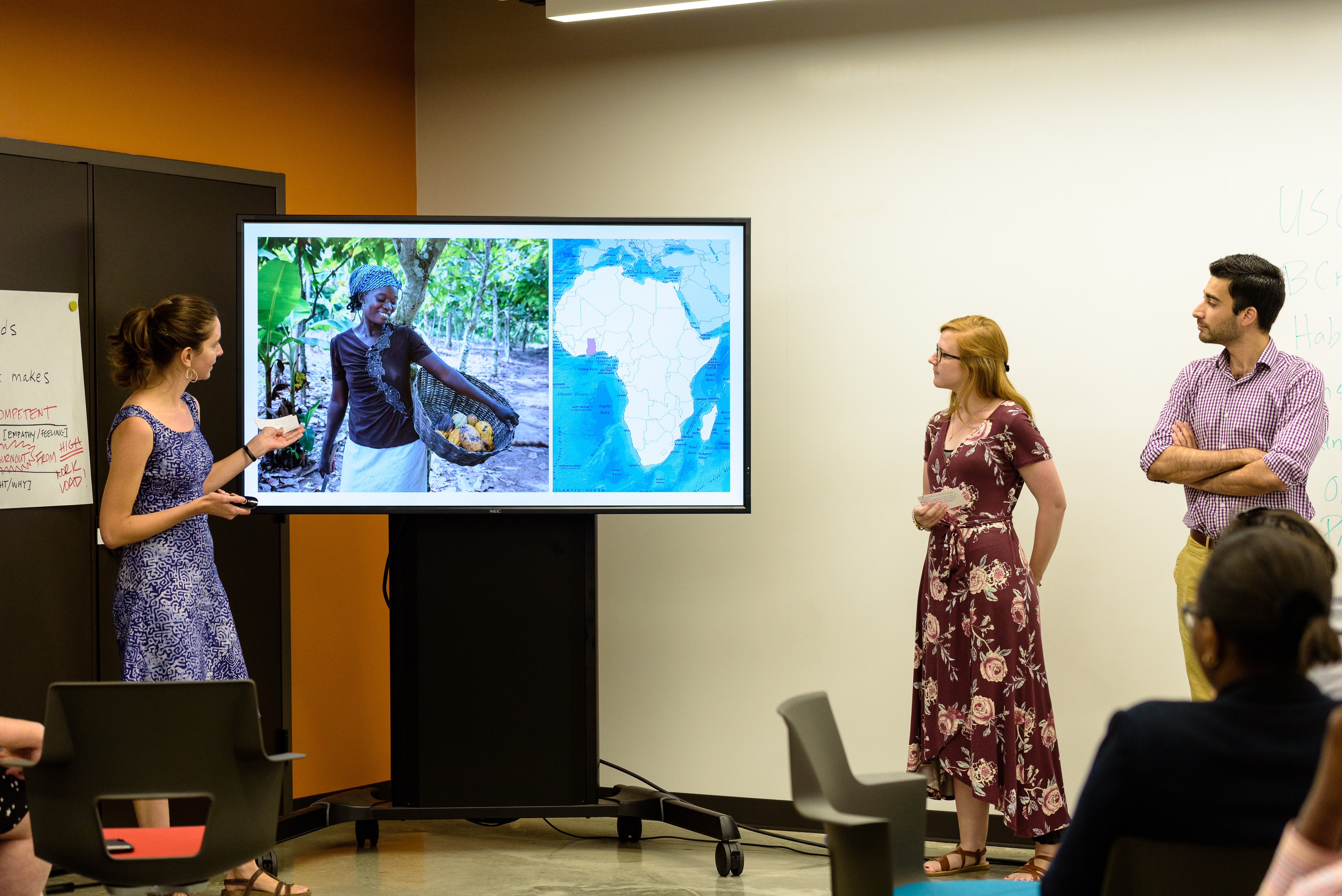
Institute for Economic Affairs
Asmaa El Messnaoui, Dorcas Omowole, Loyce Mrewa, and Rhea Fe Silvosa traveled to Kenya to develop scenarios for the future of Kenya’s devolution—transferring power to local levels in a way that promotes democratic participation, equitable distribution of resources, and peaceful conflict resolution. The team conducted interviews with officials at all levels of government to understand the various perspectives on devolution efforts in multiple counties around Kenya. The team is in the process of identifying the key drivers of positive devolution by understanding the underlying motivations for various stakeholders. They are developing targeted short-term policy options and advocacy messages to drive higher, more sustainable, and more equitable development and peace outcomes.
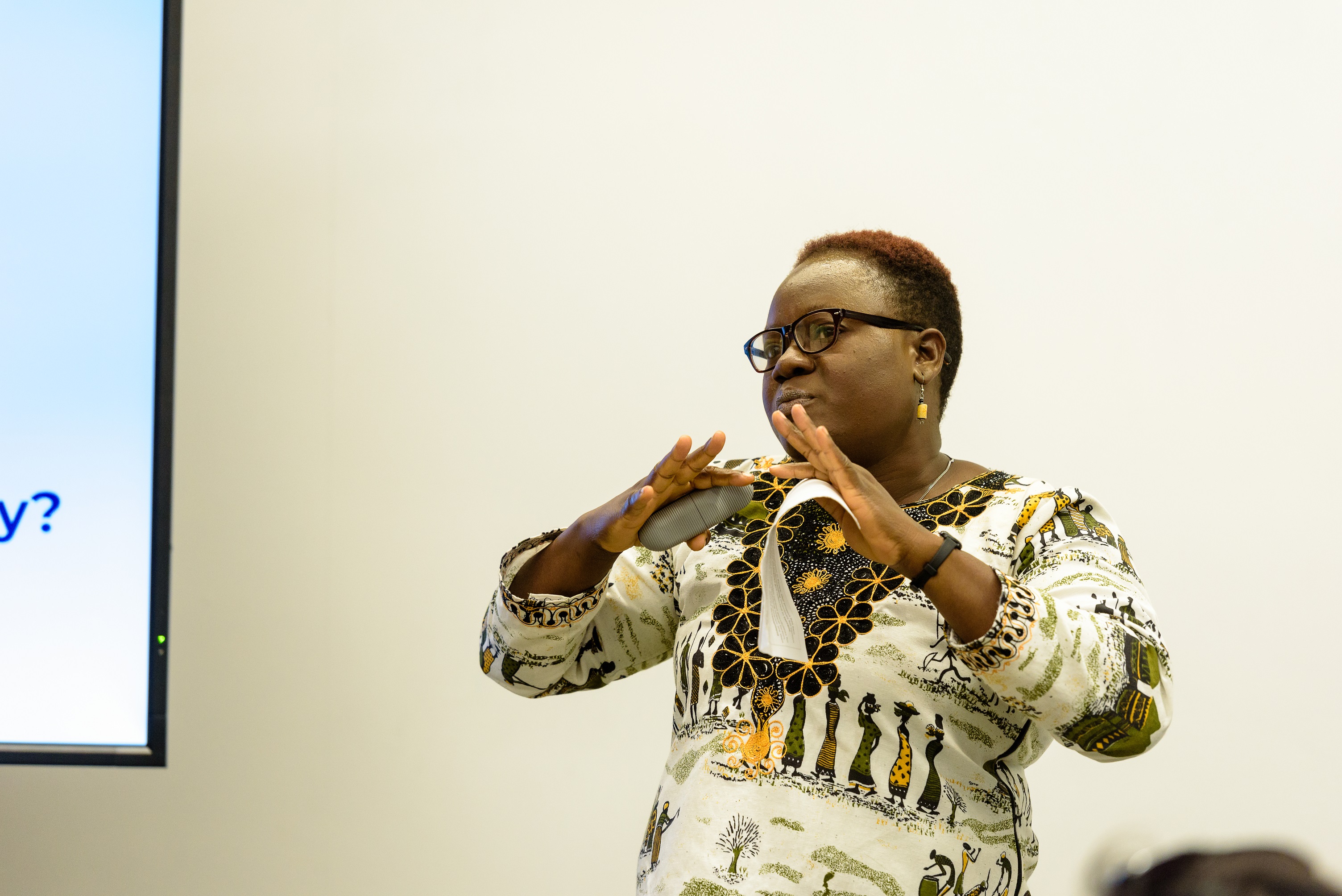
United States Conference of Catholic Bishops
Patrick Calderon, Kathleen Kollman, Shuyuan Shen, and Mehak Anjum Siddiquei traveled to the US/Mexico border, thento Greece, Germany, and Switzerland to explore and document complex immigration enforcement systems. The team conducted interviews in areas most affected by current global migration patterns, specifically looking at best practices in respecting the human rights of immigrants. They have already shared their initial findings through a stakeholder conference in Washington, D.C. Patrick, Kathleen, Shuyuan, and Mehak will continue the comparative analysis of U.S. and European contexts and build a report capturing best practices.
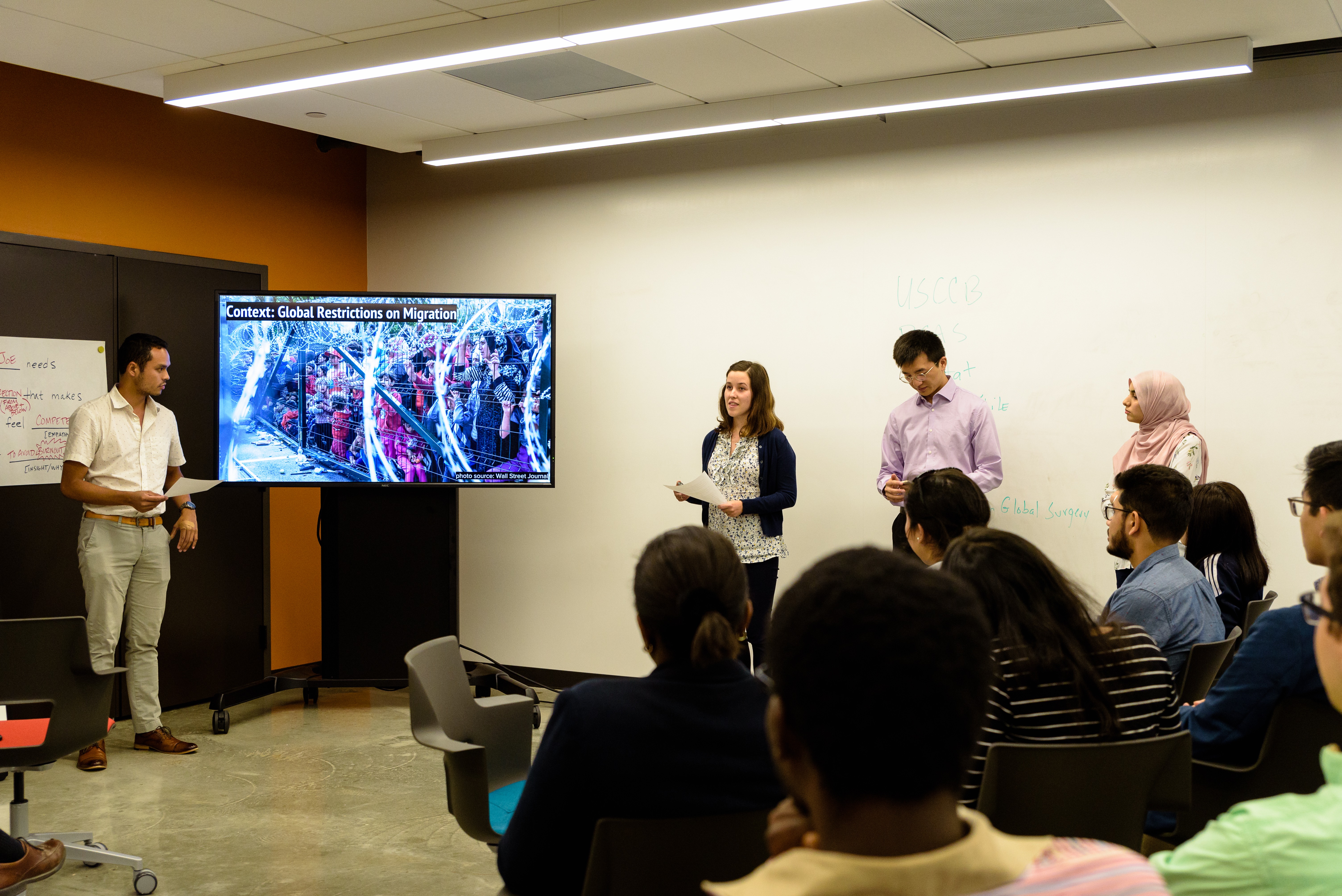
Habitat for Humanity International – Terwillinger Center for Innovation in Shelter
Jiyeon Ahn, Juanita Esguerra, and Steven Wagner traveled to the Philippines to look for opportunities to enhance the resilience of local housing markets essential to delivering safe and dignified shelter. The team mapped the local markets that provide materials for housing construction through informational interviews and key stakeholder engagement in communities still recovering from Super Typhoon Yolanda. They are now developing a tool that will enable organizations in the Philippines and around the world to more effectively assess local market readiness to react to disaster, identify critical commodities, and develop appropriate interventions to strengthen them.
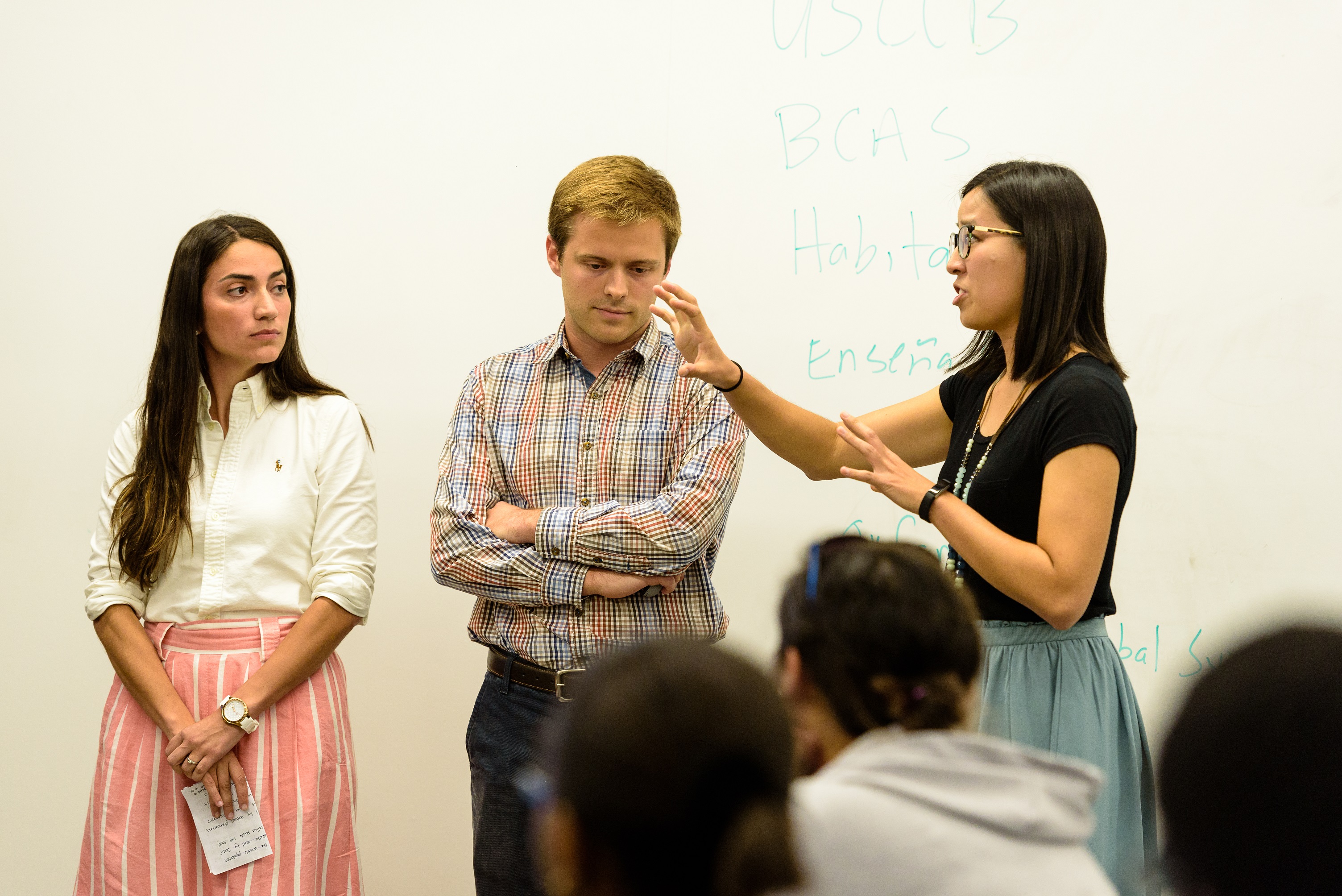
Both the partner organizations and the students are finding the i-Lab global partner experience to be a unique and perspective-altering engagement. Partners value the extended duration of the partnership, as well as the skills, passion, and level of professionalism our students bring to the table every day. Students have consistently talked about the advantages of this more consultative-style educational experience and the value of designing, planning, and executing their own strategy. Throughout the fall, the students will consolidate their findings and deliver their final product to their partners.
Everyone involved seemed to learn a lot, and the i-Lab staff and faculty are incredibly excited for the next two semesters, when the students will translate their deep understanding of the situation on the ground to policy conversations in Washington, D.C.

